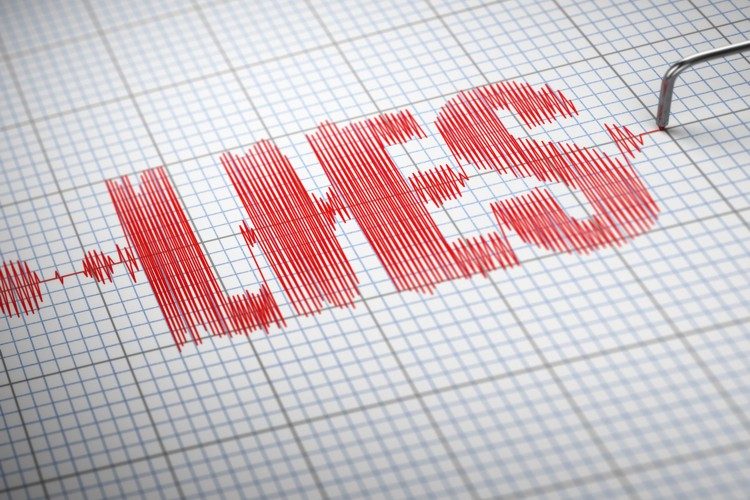
Conservatives, let not your heart be troubled. You are being censored more on social media, a new study has found. But the researchers can help you solve the problem because, they say, they have identified it.
You.
The study has “found,” you see, that conservatives endure social-media suspension more only because they share more “misinformation.” The remedy?
Just echo mainstream media in your determinations and, “Voila!” — you can express opinions with complete freedom.
Oh, the researchers did “prove” their thesis, using “fact-checkers” such as Snopes.com. (Never mind that site co-founder David Mikkelson was suspended in 2021 for plagiarizing at least 54 articles. And never mind that Snopes has in the past had to confess that some of its fact-checks were false.)
Just the Facts, Ma’am?
The study, “Differences in misinformation sharing can lead to politically asymmetric sanctions,” was published Wednesday in the journal Nature. As Phys.org reports, the paper
suggests that the higher quantity of social media policy enforcement (such as account suspensions) for conservative users could be explained by the higher quantity of misinformation shared by those conservative users—and so does not constitute evidence of inherent biases in the policies from social media companies or in the definition of what constitutes misinformation.
Written by researchers from MIT Sloan School of Management, the University of Oxford, Cornell University, and Yale University, co-authors of the paper include Mohsen Mosleh, Qi Yang, Tauhid Zaman, Gordon Pennycook and David G. Rand.
… Many Americans who disagree on political issues agree that the sharing of false information is a substantial problem; sixty-five percent of Americans say that technology companies should take action to restrict the spread of false information. However, there is great dissension as to whether tech companies are actually moderating platforms fairly.
Whose “Facts”?
The researchers began by examining the suspension of users by then-Twitter (now X) following the 2020 U.S. presidential election. As the researchers write:
Indeed, we find that accounts that had shared #Trump2020 during the election were 4.4 times more likely to have been subsequently suspended than those that shared #VoteBidenHarris2020…. Specifically, whereas only 4.5% of the users who shared Biden hashtags had been suspended as of July 2021, 19.6% of the users who shared Trump hashtags had been suspended.
The paper then states that as in the past (it cites the 2016 and 2020 elections and Donald Trump’s first impeachment):
people who used Trump hashtags shared news from domains that were on average rated as significantly less trustworthy than people who used Biden hashtags. For example, using trustworthiness ratings of 60 news domains (the 20 highest volume sites within each category of mainstream, hyper-partisan and fake news, as determined by fact-checkers and journalists….)
MSN commenters on the Phys.org article were quick to identify a problem with the above. For example, the part always left “out is who determines what is misinformation and what is not,” wrote “B Mill77.” “We see factually incorrect info go untouched all the time when it supports a left leaning agenda. If it is caught, it is without a lot of attention and downplayed.”
Just consider the Hunter Biden laptop story. Mainstream media called it “Russian disinfo” based on U.S.-intel-official disinfo. Social media then suppressed the New York Post story on it just prior to the 2020 election. Oh, even The New York Times would ultimately confirm it was accurate, however — quite conveniently, after the election. Note: A poll found that 16 percent of Biden voters would’ve reconsidered their vote had they known the truth. So, a question should be asked:
Where were the “fact-checkers” when it mattered?
Quality?
Where? Busy, it appears, compiling biased quality-news-site ratings. Just consider some of the sites Nature apparently lists as “low quality”:
- foxnews.com.
- breitbart.com
- nypost.com
- dailymail.co.uk.
- dailycaller.com.
And these apparently are some of the study’s “high-quality sites”:
- nytimes.com.
- cnn.com.
- rawstory.com.
- cbsnews.com.
- usatoday.com.
(By the way, these truth-police types would surely also label The New American a “low-quality site.”)
As for CNN, know that it had to pay a huge settlement for defaming a minor and that some of its talent was caught on hidden video admitting that the Trump/Russia collusion story, which the network was pushing, was nonsense. Note, too, that the Nature study lists Snopes and Politifact as two of the “professional fact-checkers” it relied on for its Twitter false-claims research. Yet those two entities, along with CNN and USA Today, have all issued false fact-checks. In certain cases, these outfits actually had to walk back their assertions. Notably, Snopes and USA Today both once claimed the Covid lab-leak theory was untrue.
We’re All Fact-checkers
Really, part of the problem lies with this notion of a “professional fact-checker,” a term the study authors use. What does this even mean?
If meant is that they perform the job as a “profession,” that’s one thing. Then it’s merely like saying that a fortune-telling operation is run by a “professional psychic.” It’s another, however, if it carries the connotation of someone who’s nonpareil in the Truth-discernment business. In this case, reason and recent history inform that the label itself is misinformation.
In reality, I and most in the media would purport to be fact-checkers. We claim to want to debunk falsehoods and reveal Truth. The only difference is that some of us are honest, some are not. Some of us are discerning, others are not. Some of us love Truth (objective by definition), others deny its existence.
An irony here, too, is that people such as the study authors would scoff at the concept of papal infallibility. Yet they then imply that some entirely worldly entities are close enough to infallible to constitute a Ministry of Truth. In fact, the researchers go as far as to say their study demonstrates why social media shouldn’t stop censoring misinformation.
But even a Harvard “dishonesty researcher” was accused of dishonesty. This is no surprise, either. A shocking three-quarters or more of research studies in many fields are bunk, reported the Economist in 2013. And it all raises a question:
Should we effect censorship based on possibly fake science designed to vindicate fake news in deference to a fake government — with the end result of creating a very real tyranny?



